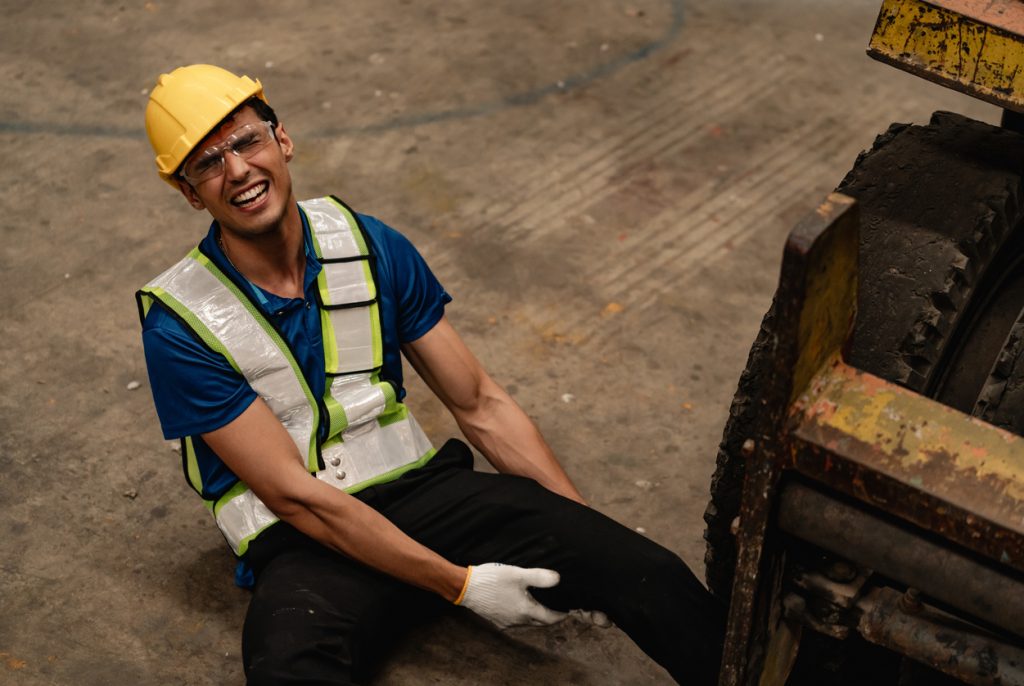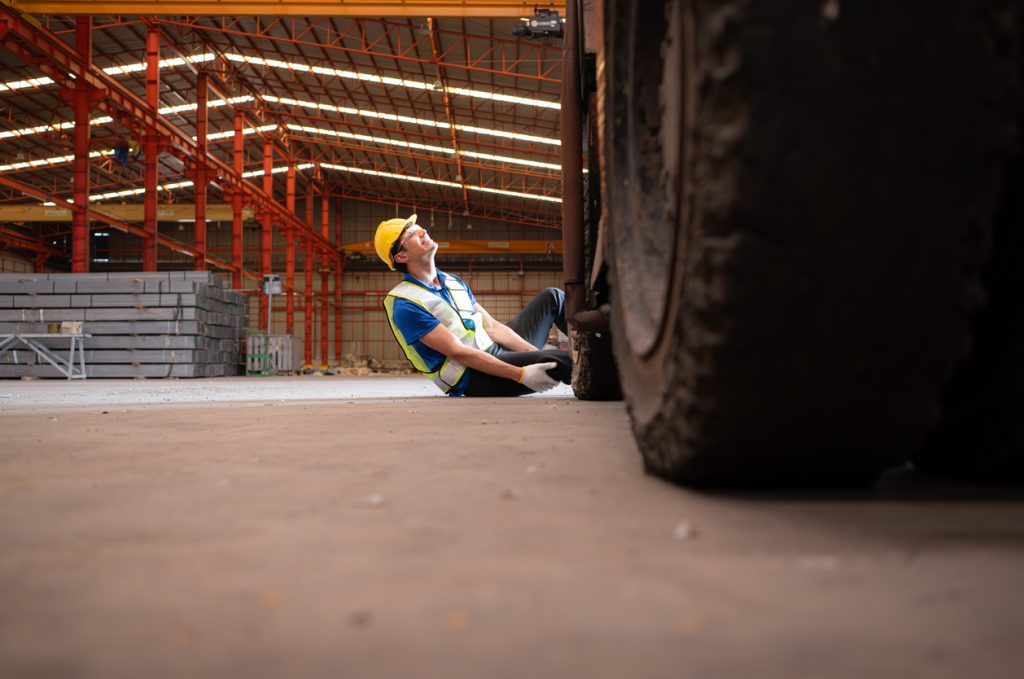Filing a claim for Work‑Related Vehicle Accident Injuries in Missouri can be complex and stressful. Mistakes in the process may result in denied benefits, delayed recovery, or unnecessary expense. Understanding these pitfalls equips injured workers to navigate the system with confidence and secure rightful compensation.
Understanding What Counts as Work‑Related Vehicle Accident Injuries in Missouri
A common misstep is not recognizing what qualifies as Work‑Related Vehicle Accident Injuries in Missouri. Not all accidents during work hours are covered. Injuries must occur while performing job duties—like traveling between job sites—or during employer-mandated travel. Those commuting to a designated workplace typically don’t qualify.
Furthermore, injuries sustained during personal detours or side trips are often excluded. Missouri courts refer to the “arising out of and in the course of employment” doctrine. For example, a delivery driver diverted for a personal errand may disqualify the claim.
Misjudging What the Employer’s Insurance Should Cover
Keeping track of whether Workers’ Compensation or commercial auto insurance applies can be confusing. In Missouri, the Workers’ Compensation Division clarifies that Work‑Related Vehicle Accident Injuries in Missouri are covered if directly tied to your employment. However, misfiling under personal auto liability may result in rejected compensation for medical care or lost wages.
When an employer uses a company vehicle, the injury typically falls under workers’ compensation, not auto insurance. Misunderstanding this distinction delays benefits.
Missouri’s Division of Workers’ Compensation website clarifies filing timelines and coverage criteria—making it a valuable resource.
Waiting Too Long to Report Work‑Related Vehicle Accident Injuries in Missouri
Missouri law requires notification to your employer within 30 days of discovering a work-related injury. Failing to report an accident involving Work‑Related Vehicle Accident Injuries in Missouri promptly may lead to denial of the claim.
Courts in Missouri have upheld that late notice—without valid reason—can cancel otherwise legitimate claims. It’s crucial to inform your supervisor or HR as soon as possible after an accident.

Delaying a Visit to a Medical Provider After Work‑Related Vehicle Accident Injuries in Missouri
Seeking immediate medical attention is essential for two reasons: ensuring prompt treatment and creating an official record. Delays can make it appear the injury was minor or unrelated to work. Under Missouri Revised Statutes §287.140, medical care requires timely documentation.
Waiting days or weeks before seeing a doctor often weakens your claim. Moreover, treatment records establish the causal link between your crash and your condition.
Choosing the Wrong Medical Provider
Not all providers are qualified to treat Work‑Related Vehicle Accident Injuries in Missouri under workers’ compensation. Some may not accept workers’ comp patients or might hinder the claim process.
Missouri law allows employers to designate the initial medical provider. If you opt for your own doctor without employer approval, your claim may be delayed or denied. It’s vital to confirm early on who will attend to your injuries—this ensures treatment continuity and compliance.
Not Documenting the Accident Scene and Vehicle Damage
Proper documentation strengthens a claim for Work‑Related Vehicle Accident Injuries in Missouri. Failure to photograph the accident scene, vehicle damage, road conditions, or gather witness information may lead to disputes over fault or causation.
Missouri courts view objective evidence—photos, police reports, and witness statements—as vital. Collecting such documentation immediately underscores the legitimacy of your claim.
Accepting Early Settlement Offers Too Quickly
Insurers sometimes present quick settlement offers after Work‑Related Vehicle Accident Injuries in Missouri claims are filed. Though tempting, early offers rarely cover long-term consequences such as ongoing medical care or lost earning capacity.
Settling prematurely—before a full recovery—is a mistake. Accepting a lump sum may prevent later claims for complications or additional treatments.
Not Tracking Medical Bills, Expenses, and Lost Wages
Keeping a detailed log of medical bills, receipts for prescriptions or equipment, and records of missed workdays is critical. Omitting these can cause insurers to undervalue or deny parts of your claim for Work‑Related Vehicle Accident Injuries in Missouri.
Missouri workers’ compensation relies heavily on accurate financial records to determine wage loss benefits. An incomplete documentation trail weakens your position.
Overlooking Reduced Earning Capacity or Permanent Impairment
A significant number of individuals with Work‑Related Vehicle Accident Injuries in Missouri face enduring impairments that affect future earning capacity. Failing to address these in the claim can lead to inadequate compensation.
Missouri Revised Statutes §287.120 permits claims for permanent partial disability. Thorough medical evaluations that examine long-term impairment are crucial—so don’t miss this aspect.

Neglecting Vocational Rehabilitation Benefits
If your injuries prohibit you from returning to your former role, you may be eligible for vocational rehabilitation services. Overlooking this benefit diminishes your ability to regain employment and income after Work‑Related Vehicle Accident Injuries in Missouri.
Missouri Workers’ Compensation guidelines provide for training and guidance to help injured workers transition to new careers. Missing out on these services negatively impacts long-term outcomes.
Not Considering Third‑Party Liability in Work‑Related Vehicle Accident Injuries in Missouri
Mistakenly assuming workers’ compensation is the sole route can be costly. If a third party—like a negligent motorist or another driver—caused the crash, you may pursue a separate personal injury claim in Missouri.
Failure to recognize this can result in sacrificing extra compensation for pain, suffering, or non-economic loss. Missouri courts allow third-party actions in addition to workers’ compensation.
Failing to Understand Missouri’s Statute of Limitations
Time limits for workplace injury claims and third-party claims differ. For Work‑Related Vehicle Accident Injuries in Missouri the workers’ compensation claim must be filed within two years of injury discovery under RSMo §287.430.
Separate third-party claims usually carry a five-year statute of limitations. Missing these deadlines can bar your ability to seek full recovery.
Misinterpreting Settlement Language in Workers’ Compensation
Final settlement agreements may contain language that releases not only employer liability but any related third-party claims. Misreading such terms can dangerously limit future legal options after Work‑Related Vehicle Accident Injuries in Missouri.
Closely review settlement documents to ensure they don’t improperly forfeit additional rights—including personal injury suits against negligent third parties.
Ignoring Legal Definitions and Missouri’s Case Law Standards
Not familiarizing yourself with Missouri’s legal standards on “arising out of employment” or “during the course of employment” can undermine your case. Citing relevant case law when presenting the accident’s context can strongly support the claim.
Referencing Missouri Supreme Court decisions that clarify the work-relatedness of vehicle accidents lends credibility and weight to your filing.
Skipping the Link Between Work Duties and Accident Cause
Failing to articulate how your job responsibilities led to the incident can derail a claim. It’s essential to show the connection between assigned tasks and the accident.
For example, detailing that your employer instructed you to deliver materials on a specific route establishes the link. This narrative reinforces the validity of Work‑Related Vehicle Accident Injuries in Missouri as part of your job.
Relying Solely on Employer or Insurance Company Narratives
Letting others define the facts can weaken your claim for Work‑Related Vehicle Accident Injuries in Missouri. Insurance companies often frame vehicle accidents as non-work-related to deny liability.
Maintaining thorough personal records, written accounts, and independent witness statements helps preserve your version of events. Don’t rely only on official reports.

Underestimating the Value of an Accurate Accident Report
A poorly completed accident report can be just as harmful as no report at all. Leaving sections blank, providing incomplete descriptions, or failing to assign fault affects the claim’s strength.
Ensure your written account includes the date, time, job duty details, accident location, and witness names to support the Work‑Related Vehicle Accident Injuries in Missouri claim.
Not Reviewing Settlements for All Injuries and Traces
Some injuries from vehicle accidents surface weeks later—like neck injuries or psychological trauma. Settling without accounting for those potential issues can leave you uncompensated.
When dealing with Work‑Related Vehicle Accident Injuries in Missouri, make sure the agreement includes future medical evaluations for late-emerging conditions.
Overlooking In‑Person Hearings or Appeal Deadlines
If your claim is contested, Missouri’s Administrative Hearing Section allows for workers’ compensation hearings. Missing scheduling notices or failing to request an appeal within 30 days can forfeit your rights.
Staying vigilant about deadlines preserves access to hearings and benefits.
Skipping Notification of Subsequent Medical Providers
If you change doctors mid-recovery, failing to notify your employer or the Insurance Carrier may result in non-payment of bills. Timely communication about providers is essential for continued coverage of Work‑Related Vehicle Accident Injuries in Missouri.
Assuming a Provider Will Handle the Paperwork for Work‑Related Vehicle Accident Injuries in Missouri
Some injured workers assume their medical provider or the employer’s insurer will submit required forms. However, missing form submissions—such as the First Report of Injury—can ban claims.
Ensure that required forms are filed, and request copies for your own records.
Neglecting to Seek Vocational or Psychological Support
Vehicle accidents can induce emotional trauma or PTSD. Overlooking mental health support weakens the claim’s integrity and may prolong recovery. Documenting psychological symptoms adds validity to the full impact of Work‑Related Vehicle Accident Injuries in Missouri.
Misjudging What the Employer’s Insurance Should Cover
Keeping track of whether Workers’ Compensation or commercial auto insurance applies can be confusing. In Missouri, the Workers’ Compensation Division clarifies that Work‑Related Vehicle Accident Injuries in Missouri are covered if directly tied to your employment.
Misunderstanding what Missouri Workers’ Compensation actually covers is one of the most overlooked mistakes. Many employees wrongly assume that any vehicle accident on work hours automatically qualifies for benefits. To clarify eligibility, review this detailed breakdown of Work-Related Vehicle Accident Injuries in Missouri, which outlines when an injury may be compensable under state law and how the employment connection is determined.
When an employer uses a company vehicle, the injury typically falls under workers’ compensation, not auto insurance. Misunderstanding this distinction delays benefits.
Summary of Avoidable Errors in Filing for Work‑Related Vehicle Accident Injuries in Missouri
Avoiding these errors increases the chances of a successful claim:
- Recognize when a vehicle accident qualifies as Work‑Related Vehicle Accident Injuries in Missouri
- Report accidents promptly and seek immediate care from approved providers
- Preserve thorough documentation of the accident, injuries, expenses, and limitations
- Understand filing deadlines, settlement language, and benefits scope
- Explore third-party claims, vocational support, and mental health assistance
- To strengthen your filing, review guidance on Work‑Related Vehicle Accident Injuries in Missouri at Missouri’s Division of Workers’ Compensation website.
- In addition, once you’ve explored these common pitfalls, consider further insights from this in-depth article on common mistakes after a motor vehicle crash in Missouri, which addresses accident dynamics, evidence preservation, and legal timelines in similar contexts.
- At the end of the day, diligence in reporting, treatment, documentation, and understanding Missouri-specific laws makes all the difference in Work‑Related Vehicle Accident Injuries in Missouri claims.
- For more detailed exploration of typical vehicle crash missteps in Missouri, refer to this in-depth piece on common mistakes car crash in Missouri for practical lessons and guidance.
